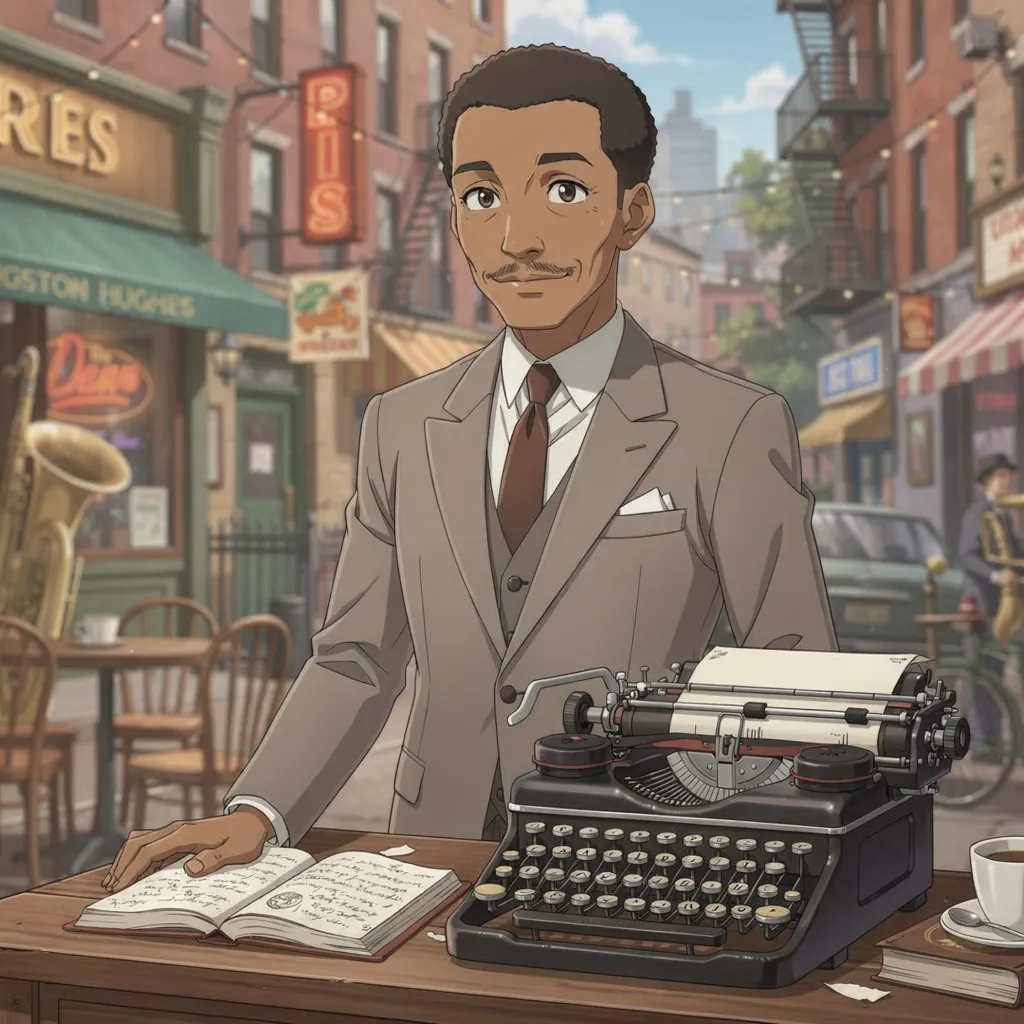
Langston Hughes
1901-1967
Being a famous poet and writer who helped share African American stories during the Harlem Renaissance
Early Life
Langston Hughes was born in 1901 in Joplin, Missouri. When he was young, his parents lived in different places, so Langston moved around a lot and often lived with relatives. This gave him the chance to see many towns, meet different people, and hear many kinds of stories.
As a child, Langston loved to read and write. He enjoyed poetry and often wrote about what he saw and felt. Even at a young age, he believed words could help people understand each other better.
Discovering His Voice
Langston went to college and later traveled to many countries, including places in Africa and Europe. These trips helped him learn about different cultures and inspired his writing. He listened closely to music, especially jazz and blues, and used their rhythms in his poems.
He wanted his writing to sound like real people talking. Langston believed that everyday life was important and worth writing about. This made his poems easy to understand and enjoyable for many readers.
Achievements and Writing
Langston Hughes became one of the leaders of the Harlem Renaissance, a time when African American art, music, and writing grew and became famous. He wrote poems, stories, plays, and even song lyrics.
One of his most famous poems is called *“The Negro Speaks of Rivers.”* He wrote it when he was just a teenager. His work often celebrated hope, dreams, and the strength of people who kept going, even when life was hard.
Helping Others and Making a Difference
Langston wanted his writing to help people feel proud of who they were. He believed everyone’s story mattered. He also helped other young writers by encouraging them and sharing their work.
He spent his life using words to bring people together. Because of this, many teachers still share his poems with students today.
Legacy
Langston Hughes passed away in 1967, but his words are still read all over the world. His poems remind us to dream big and believe in ourselves.
He showed that writing can be powerful, kind, and full of hope. Langston Hughes will always be remembered as a writer who listened to the world and shared its music through poetry.
🎉 Fun Facts
Langston Hughes wrote his first famous poem when he was only 17 years old.
He loved jazz music and often wrote poems that sounded like songs.
Langston worked many jobs, including being a cook and a sailor.
One of the homes where he lived in Harlem later became a historic place people can visit.
Some of his poems have been turned into songs and plays.